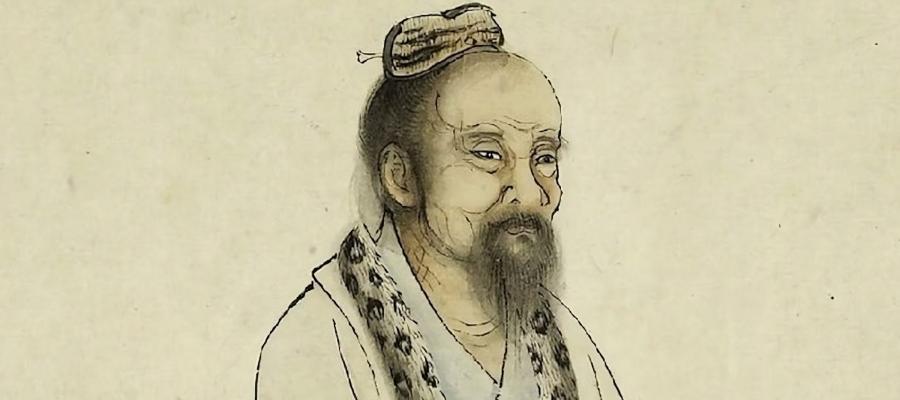Zhuangzi: Being One with Ten Thousand Things
Nov 05, 2023Zhuangzi, the 4th-century BCE Chinese philosopher, was arguably the most important figure in Taoism.

Zhuangzi is a famous Taoist philosopher from fourth-century-BCE China, known for his brilliance, his paradoxes, and his pithy aphorisms. Here’s one:
“When people sleep in a damp place, they wake up deathly ill. But what about eels?
If people live in trees, they tremble with fear and worry. But how about monkeys?
Of these three, which knows what is the ‘right’ place to live?”
Zhuangzi’s Confucian contemporaries thought there was a single good way to be a human being: respect your elders, uphold order, perform all the proper rituals, be benevolent and responsible, and perfectly inhabit your social role. But Zhuangzi profoundly disagreed. There’s no such thing as the one good way to be, he thought, since each of us has different needs. (“From the point of view of the Way, no thing is more valuable than any other.”) And as for our social roles, who says it’s good to be useful?
Zhuangzi’s key example was a useless tree, really bad at performing its social role—so gnarly and twisted that no carpenter could use it for anything. So it survived, while all the other trees got cut down and turned into lumber. “Everyone knows how useful usefulness is,” quipped Zhuangzi, “but no one seems to know how useful uselessness is.”
Meanwhile, even if we are trying to figure out what is good and what is bad for us, we shouldn’t do that by listening to authority figures. Zhuangzi tells of a man swimming in a raging waterfall. Someone asks how he got so good at swimming, and he says nobody taught him; he just followed his inborn nature. A good reminder, thinks Zhuangzi, that there’s no point listening to teachers.
So we have a sage telling us not to listen to sages; his advice is not to listen to advice; there’s a practice, but it doesn’t involve practice; and it’s good for us, except that nothing is good or bad. Does that all make sense?
Well, the whole point of Zhuangzi is to get beyond questions like that. As he himself puts it, “What man knows is far less than what he does not know. It is because he tries to exhaust this vastness with this meagerness that he bewilders and frustrates himself.” We need to stop trying to encompass everything with those feeble minds of ours. And more generally, we need to calm down and stop striving. If everyone did that, there would be no war, or greed, or oppression.
On the other hand, it’s not clear there would be a ton of joy, either. The universe, says Zhuangzi, “burdens me with a physical form, labors me with life, eases me with old age, rests me with death.” If death is a relief, Zhuangzi’s way of life doesn’t sound like a particularly cheerful existence. Confucians might add that it’s a recipe for confusion, apathy, or even bad behavior. And philosophers like us might say it deprives us of the fun we have in thinking hard about the world.
But we’re going to have fun being talked out of all that by our guest: Paul Kjellberg from Whittier College, editor of Essays on Skepticism, Relativism, and Ethics in The Zhuangzi. He's an excellent teacher. Wait—does that mean we shouldn't listen to him?
Comments (3)
Josh Landy
Friday, February 9, 2024 -- 1:34 PM
A listener has kindly askedA listener has kindly asked us to provide references for the quotations—thank you, listner! They are drawn from Zhuangzi: The Essential Writings, translated by Brook Ziporyn.
Chapters and sections are as follows:
“When people sleep in a damp place, they wake up deathly ill. But what about eels?
If people live in trees, they tremble with fear and worry. But how about monkeys?
Of these three, which knows what is the ‘right’ place to live?” (2:38)
“From the point of view of the Way, no thing is more valuable than any other.” (ch. 17, page 71; spoken by Ruo)
“Everyone knows how useful usefulness is, but no one seems to know how useful uselessness is.” (4:20)
“What man knows is far less than what he does not know. It is because he tries to exhaust this vastness with this meagerness that he bewilders and frustrates himself.” (chapter 17, page 70; spoken by Ruo)
“The Great Clump burdens me with a physical form, labors me with life, eases me with old age, rests me with death.” (6:24, 6:41)
Thanks again for the question!
polinkuer12
Tuesday, March 5, 2024 -- 11:22 PM
Some stories are completelySome stories are completely whimsical, such as the strange description of evolution from "misty spray" through a series of substances and insects to horses and humans, while a few other passages seem to be "sheer playful nonsense" which read like Lewis Carroll's "Jabberwocky". The Zhuangzi is full of quirky and fantastic character archetypes, such as "Mad Stammerer", " Quick Draw ", "Fancypants Scholar", "Sir Plow", and a man who fancies that his left arm will turn into a rooster, his right arm will turn into a crossbow, and his buttocks will become cartwheels.
Nanisa
Thursday, April 4, 2024 -- 12:13 AM
Players can experience aPlayers can experience a virtual existence from birth to death in the text-based life simulation game bitlife. Gamers take charge of every element of their virtual lives in the game, from naming and customizing their characters to selecting their relationships, careers, and general way of life. The game offers in-app purchases and is classified Mature 17+. Google Play and other outlets offer it for purchase.